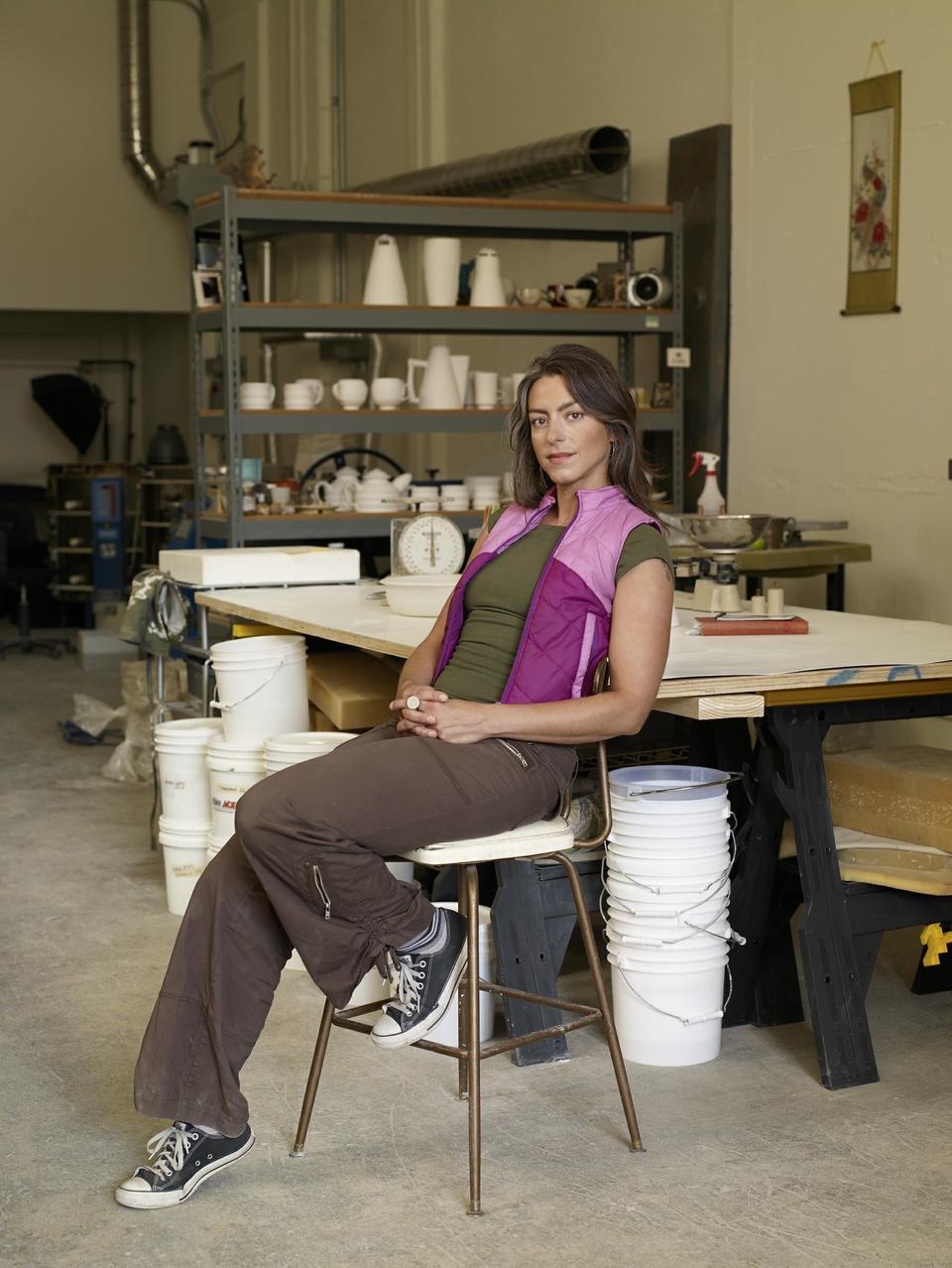
News
Cambridge Residents Slam Council Proposal to Delay Bike Lane Construction

News
‘Gender-Affirming Slay Fest’: Harvard College QSA Hosts Annual Queer Prom

News
‘Not Being Nerds’: Harvard Students Dance to Tinashe at Yardfest

News
Wrongful Death Trial Against CAMHS Employee Over 2015 Student Suicide To Begin Tuesday

News
Cornel West, Harvard Affiliates Call for University to Divest from ‘Israeli Apartheid’ at Rally
Portrait of an Artist
Christa Assad brings the art of handmade pottery into the 21st century with a two-day workshop on September 18 and 19

Although initially performing as a pianist strictly with jazz techniques, Eric Lewis, known professonially as ELEW, has expanded the traditional limits of a jazz musician’s repertoire with a radical style of playing he calls “Rockjazz.” The genre eschews the divide between mainstream and jazz music. His haunting renditions of well-known heavy metal, pop, and alternative rock tunes, such as Nirvana’s “Smells Like Teen Spirit,” showcase the musician’s predilection for unconventional harmonies and performance styles, such as playing not only the keys of a piano but reaching inside the instrument to experiment with the effects of strumming its strings.
ELEW's star is certainly on the rise, as he performs with established musicians like Sting on stages all over the globe. Next on his growing list of appearances is Harvard where, on September 15, ELEW will perform and participate in an informal conversation with students as part of “Conversations with Kirkland,” a student-driven series that fosters dialogue between undergraduates and accomplished artists and professionals in a variety of fields.
The Harvard Crimson: How would you define “Rockjazz” to someone unfamiliar with your work?
ELEW: “Rockjazz” has everything to do with focusing on more than just the sound of rock music but the drama and style of rock.. It is about focusing on the culture of rock and bringing it into the jazz world.
THC: How do you select the songs that you choose to cover?
ELEW: I generally choose songs based upon their lyrics, architecture, and popularity. With popular tunes, a lot of the communication is already done so that when I get to my improvisations, the audience can appreciate what I’ve done. However, one of the strongest criteria is also the lyrics, because my journey as a jazz pianist to a rock player was an emotional one. In the jazz world, there weren’t any songs lyrically that spoke to the psychological aspects of my emotions. But my feelings of stress, anger, and betrayal led the way to the transparency of those emotions in a song like “Smells Like Teen Spirit.” These kinds of lyrics spoke to a part of my life experience that jazz lyrics never spoke to.
THC: You have performed in a variety of venues throughout your career, from large concert halls to Bloomingdales. What was it like to play in the White House?
ELEW: It was a surrealistic experience. Michelle Obama was glorious, and Barack Obama was amazing. I had a chance to shake his hand, look him in the eye. I gave the First Lady a clutch bag as a gift thanking her for allowing me be a participant in the [performance]. She was very supportive of me. What can I say? It’s one of those pieces of eternity that I can behold and have reflections of nostalgia and gratitude.
THC: As your profile rises, you have been attracting a lot of corporate attention from companies such as Google, Coca Cola, FedEx, and Proctor & Gamble. How do you respond to critics who might denounce your credibility as an artist for attracting so much mainstream popularity?
ELEW: The notion of “selling out” is a very popular stigma. When it comes to the subjectivity of being perceived as “selling out,” there are a few different ways that I can come at that. I can say that it is just naïve. Everyone buys and everyone sells. Another approach would be to say that the moment any artist leaves their parents’ home and starts to charge money for their performances, even if it’s a dollar, they just became a businessperson. Classically, artists are so in denial of being businesspeople that they stigmatize it to being something that is negative. They adopt the Vincent van Gogh model because they all romanticize a guy who was never able to sell a painting and cut off his ear in frustration. But then after his passing he was discovered to be a genius. So many of these people who talk about selling out are deep down hoping for or romanticizing the belief that after they are gone they are going to be important.
THC: Where do you see the future of “Rockjazz” and how that genre might influence other artists in their approach to music making?
ELEW: Well, “Rockjazz” is very personal. It’s my term for what I do and what I observe as my style. We will see what generations of musicians decide to do or not to do with it.
THC: What do you hope to gain from visiting Harvard and interacting with students through the “Conversations at Kirkland” event?
ELEW: One of the big functions of academic institutions was to provide an area where different ideas and concepts can collide. The overall process of collision, meaning the destruction of lesser ideas or the weaker ones in a sort of Darwinian type of evolution of ideas, is a positive strength that leads to innovation and to progress. So, I look forward to colliding with the different minds there. I’m sure there will be interesting conversations and perhaps disagreements, and I’m hoping to collide and see what we can come up with. I’m sure we will all come away with some positive progress.
—Staff writer Eunice Y. Kim can be reached at kim30@fas.harvard.edu.
Want to keep up with breaking news? Subscribe to our email newsletter.
